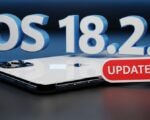Elon Musk has clarified that Tesla isn’t currently developing a smartphone. However, he left the door open for future possibilities if Apple and Google continue to restrict app access.
Musk’s Conditional Statement on Tesla’s Potential Entry into the Smartphone Market
During a recent episode of the Joe Rogan Experience podcast, Elon Musk addressed persistent rumors about Tesla launching its own smartphone. “No, we’re not doing a phone,” Musk stated unequivocally. He emphasized that Tesla might consider developing a non-Android and non-iOS smartphone if major tech giants like Apple and Google continue to act as gatekeepers by censoring apps.
This revelation comes after years of speculation and misinformation surrounding Tesla’s potential entry into the mobile device market. Musk highlighted Tesla’s strong software capabilities as a foundation that could support such an endeavor. “Tesla is probably in a better position to create a smartphone that isn’t tied down by the limitations of existing mobile operating systems,” he mentioned.
Despite the intrigue, history suggests that Tesla venturing into the smartphone market might not be the wisest move. The automotive company has excelled in its core domain, and diversifying into consumer electronics could divert focus from its primary mission of accelerating the world’s transition to sustainable energy.

The Puzzle Pieces and Historical Context
While Musk didn’t dismiss the idea entirely, he pointed out that certain elements would need to align for Tesla to successfully launch a smartphone. The company’s expertise in software development and hardware integration positions it well for such a project. However, the competitive nature of the smartphone industry, dominated by established players like Apple and Samsung, presents significant challenges.
Rumors of a Tesla phone have persisted, fueled by occasional hints and Musk’s ventures into other technology sectors. However, Tesla has historically remained committed to its automotive and energy products, rarely venturing far from its established industries. The potential smartphone project seems more like a theoretical discussion rather than a concrete plan.
Furthermore, the smartphone market’s saturation and the high costs associated with developing and marketing a new device make it a risky venture. Tesla’s resources are better utilized in areas where the company has a clear competitive advantage and can drive meaningful innovation.
Market Reactions and Industry Speculations
The tech community has been abuzz with Musk’s comments, interpreting them in various ways. Some view it as a strategic hint, suggesting that Tesla is closely monitoring the tech landscape and is ready to pivot if necessary. Others see it as Musk’s way of highlighting the issues with current app store practices, using the smartphone topic as a platform to critique Apple and Google’s control over app distribution.
Industry analysts remain skeptical about the likelihood of Tesla releasing a smartphone in the near future. The company’s focus on electric vehicles, energy storage, and autonomous driving technologies leaves little room for diversifying into the highly competitive smartphone market. Additionally, Tesla’s brand identity is strongly tied to sustainability and innovation in transportation, making a shift to consumer electronics a significant departure from its core image.
Potential Impact on the Tech Ecosystem
Should Tesla decide to develop a smartphone, it could potentially disrupt the existing market dynamics. Tesla’s reputation for integrating advanced technology and design could attract consumers looking for an alternative to mainstream smartphones. However, entering a market dominated by giants with established ecosystems poses significant hurdles.
A Tesla smartphone could offer unique features aligned with the company’s vision, such as seamless integration with Tesla vehicles and energy products. This synergy could create a niche market segment, catering to Tesla enthusiasts and eco-conscious consumers. However, achieving mass adoption would require overcoming substantial challenges in marketing, distribution, and app ecosystem development.
Moreover, Tesla’s entry into the smartphone market could prompt Apple and Google to reassess their app store policies, especially if Tesla’s device offers greater flexibility in app installation and usage. This could lead to a shift in how app stores operate, potentially benefiting consumers seeking more open platforms.
Elon Musk’s comments suggest that while Tesla isn’t currently developing a smartphone, the company remains open to exploring new technological frontiers if the market conditions align with its strategic interests. For now, Tesla continues to focus on its strengths in automotive and energy sectors, leaving the smartphone market to established players.
As the tech industry evolves, only time will tell if Tesla decides to take the plunge into smartphones. For now, Musk’s statement serves as a reminder of Tesla’s innovative spirit and willingness to explore new possibilities, even if they remain speculative for the moment.








